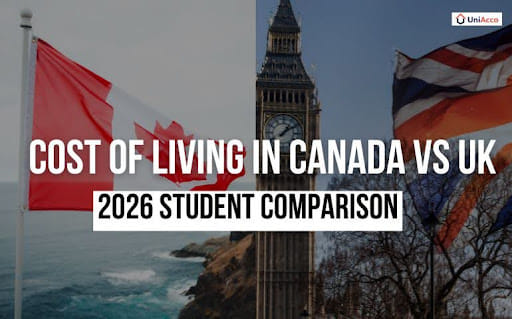The University of Calgary is a public research university located in Calgary, Alberta, Canada. It was founded in 1966 and has since become one of Canada’s top research universities, and is home to over 34,000 students and 1,800 faculty members. The university offers over 250 programs across its 14 faculties and schools, including programs in business, engineering, medicine, law, and more. These factors really affect the University of Calgary acceptance rate.
The University of Calgary is also home to several notable facilities and programs, including the Cumming School of Medicine, the Schulich School of Engineering, and the Haskayne School of Business. Additionally, the university has a strong commitment to student success and offers a range of support services and resources to help students achieve their academic and personal goals.
Are you considering applying to the University of Calgary? One of the key factors that may influence your decision is the University of Calgary acceptance rate. In this blog, we’ll explore the University of Calgary’s acceptance rate, including its admission requirements, demographic profile, enrollment requirements, and more.
What Is The University Of Calgary Acceptance Rate?
The University of Calgary’s acceptance rate varies depending on the program you are applying to. Generally speaking, the average acceptance rate for undergraduate programs at the University of Calgary is around 50%. However, some programs, such as engineering and business, may have lower acceptance rates, while others, such as arts and science programs, may have higher acceptance rates.

| Programme / Department Name | Acceptance Rate |
| Engineering | 20% |
| Business | 25-30% |
| Nursing | 40% |
| Law | 30% |
| Medicine | 3-4% |
| Education | 60% |
| Social Sciences and Humanities | 70-80% |
- Engineering: The Schulich School of Engineering at the University of Calgary is one of the most competitive programs, with an acceptance rate of around 20%. This is due to the high number of applicants and limited spots available in the program.
- Business: The Haskayne School of Business is also a competitive program with an acceptance rate of around 25-30%. This program requires a high GPA and extracurricular activities, along with a strong application and interview process.
- Nursing: The nursing program at the University of Calgary is also competitive, with an acceptance rate of around 40%. This program requires a high GPA and a strong background in sciences, along with clinical experience.
- Law: For the law program, the University of Calgary acceptance rate is around 30%, making it one of the more competitive programs at the university.
- Medicine: The Cumming School of Medicine at the University of Calgary is one of the most competitive programs, with an acceptance rate of around 3-4%. This program requires a high GPA, MCAT scores, and extensive experience in the medical field.
- Education: For The Werklund School of Education, the University of Calgary acceptance rate is around 60%, making it a more accessible program for prospective students.
- Social Sciences and Humanities: These programs at the University of Calgary have a relatively high acceptance rate, with rates ranging from 70-80%.
It’s important to note that acceptance rates can fluctuate from year to year and can vary depending on the number of applicants and the strength of the applicant pool.
In addition to the acceptance rate, the university also considers other factors in the admission process, such as your high school GPA, ACT and SAT scores (if applicable), and English language proficiency test scores, such as TOEFL or IELTS.
| Test Required For Undergraduate Programme | Minimum Score Needed |
| GPA | 3.0 on 4.0 |
| ACT/SAT | Not required but advisable to submit |
| TOEFL/IELTS | 86 or 6.5 |
For undergraduate programs, the minimum required high school GPA is typically a 3.0 on a 4.0 scale. ACT and SAT scores are not required, but they may be considered if you choose to submit them. For international students whose first language is not English, the minimum required score for the TOEFL is 86, and the minimum required score for the IELTS is 6.5.
How Hard Is It To Get Accepted At The University Of Calgary?
As mentioned earlier, the University of Calgary acceptance rate varies depending on the program you are applying to. Some programs may be more competitive than others, so it’s important to research the University of Calgary’s acceptance rate for the specific programs you are interested in.
That being said, getting accepted to the University of Calgary is not necessarily an easy feat. You will need to meet the admission requirements, which include maintaining a competitive high school GPA, submitting English language proficiency test scores (if applicable), and demonstrating strong academic performance in your previous studies.

What Is The Demographic Profile Of The University Of Calgary?
The University of Calgary has a diverse student body, with students coming from over 150 countries. The university has a total student population of over 34,000, with approximately 25,000 undergraduate students and 9,000 graduate students.
| Population Distribution Of Students At McMaster University | Percentage |
| Females | 53% |
| Males | 47% |
| Indigenous | 13% |
| International | 17% |
In terms of gender, the student body is fairly evenly split, with around 53% female students and 47% male students. Additionally, around 13% of students self-identify as Indigenous and around 17% of students are international students.
What Are The Admission Rates And Enrollment Requirements For The University Of Calgary?
The admission rates and enrollment requirements for the University of Calgary vary depending on the program you are applying to. In addition to the admission requirements discussed earlier, some programs may have additional requirements, such as interviews or portfolios.
Once you are accepted to the University of Calgary, you will need to meet the enrollment requirements, which include submitting your official transcripts, paying your tuition fees, and registering for your courses.
University of Calgary Intakes & Deadlines
You’ll find below the table that informs you of all dates and deadlines when applying to the University of Calgary. The University of Calgary acceptance rate does not differ based on which cycle you apply in, as each cycle takes into consideration different courses.
| Semester | Applications Open | Applications Deadline | Acceptance Deadline |
| Fall | October 1 | March 1 | May 1 |
| Winter (Nursing) | July 1 | September 1 | October 1 |
| Spring (Energy Eng) | October 1 | February 1 | April 1 |
| Summer (Community) | October 1 | March 1 | April 1 |

What Can You Expect Once You Get Admitted?
Once you are admitted to the University of Calgary, you can expect to be a part of a diverse and inclusive community of students, faculty, and staff. The university offers a range of programs and courses, including undergraduate and graduate programs in fields such as engineering, business, law, health sciences, arts, and sciences.
The fees for attending the University of Calgary vary based on the program of study, course load, and residency status. The university provides various financial aid options, including scholarships, bursaries, and student loans, to help students manage their education costs.
The university also offers a range of facilities and resources to support student success, including academic advising, tutoring services, and career services. The faculty at the University of Calgary are world-renowned experts in their respective fields, and students have access to top-notch research facilities and opportunities.
As a graduate of the University of Calgary, you join a network of over 200,000 alumni who are making a difference in their communities and around the world. The university provides various alumni benefits and services, including networking opportunities, career resources, and exclusive events.
Conclusion
In conclusion, the University of Calgary’s acceptance rate varies based on the program of study and the level of study. While the university is selective in its admission process, it welcomes students from diverse backgrounds and provides various resources to support their academic and personal success. Prospective students should research their program of interest and its admission requirements and deadlines to ensure a smooth application process. The University of Calgary provides a range of opportunities for students to pursue their passions and achieve their goals, and its alumni are making an impact in their communities and beyond.
FAQs
1. What is the acceptance rate of the University of Calgary?
The acceptance rate of the University of Calgary varies depending on the program and level of study. Generally, the university has an average acceptance rate of around 60-65% for undergraduate programs and 25-30% for graduate programs.
2. How is the acceptance rate calculated at the University of Calgary?
The acceptance rate at the University of Calgary is calculated by dividing the number of students who are admitted by the number of students who have applied. This percentage can vary depending on the number of available spaces and the competitiveness of the program.
3. What factors affect the acceptance rate at the University of Calgary?
Several factors can impact the acceptance rate at the University of Calgary, including the number of applicants, the academic qualifications of the applicants, the availability of spaces in the program, and the competitiveness of the program.
4. Is the acceptance rate at the University of Calgary competitive?
The acceptance rate at the University of Calgary can be competitive for some programs, especially those with limited available spaces and high demand. However, the university also offers many programs with higher acceptance rates, which can vary depending on the program and level of study.
5. Can I improve my chances of being accepted to the University of Calgary?
Yes, there are several ways to improve your chances of being accepted to the University of Calgary, including having strong academic credentials, relevant work experience, extracurricular activities, and a well-crafted application. It’s also important to meet all application requirements and deadlines and to research and understand the program you are applying for.
Thank you for reading our blog on Santa Clara University Acceptance Rate. You can also check out more such blogs here:















0 Comments